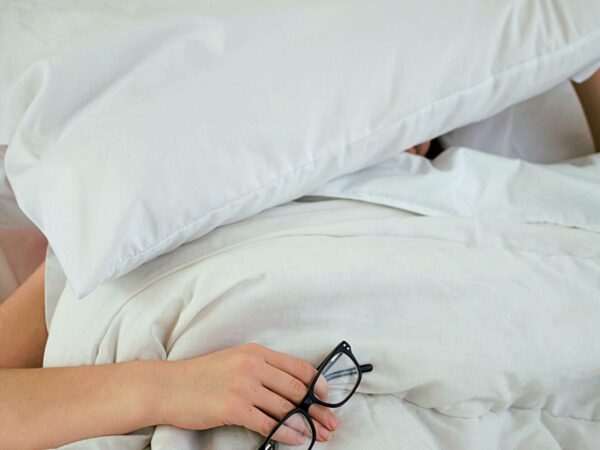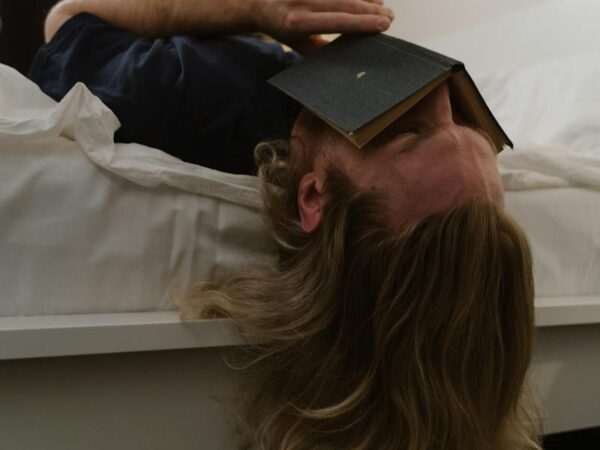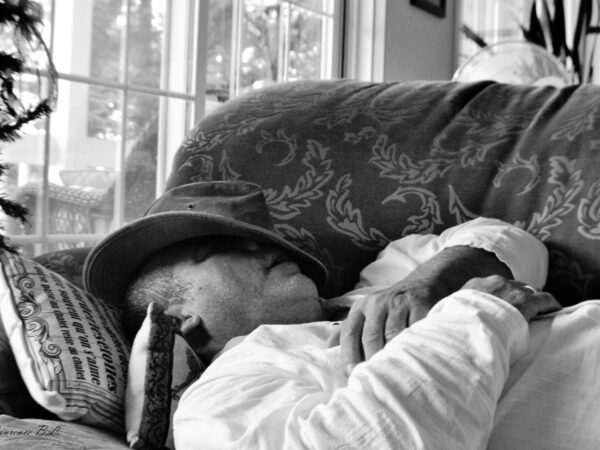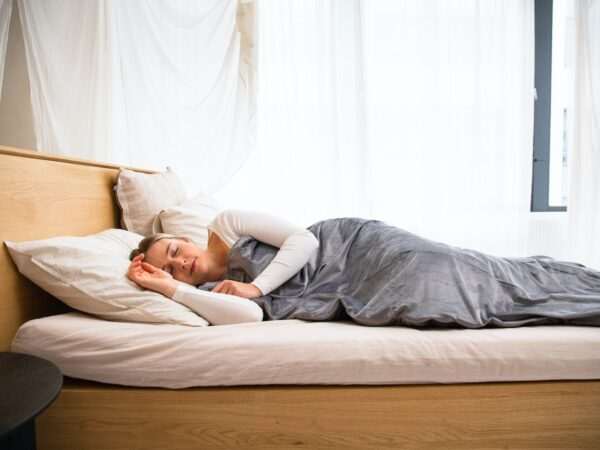Summary. Sleeping late can be an insidious habit which can have negative effects on your physical and mental well-being.
Are you fed up with suffering from tiredness and fatigue during the day because of having the habit of sleeping late? Are you searching for effective ways to get rid of it? If yes, you are in the right place. In this blog, we’ll be discussing various methods to help you kick the habit of sleeping late. First and foremost, it is important to understand why sleeping late has become a habit for you. Are there any stressors in your life that keep your mind racing and make it difficult for you to fall asleep at a reasonable hour?
How To Get Rid Of The Habit Of Sleeping Late?
If left unmanaged, this habit can lead to a feeling of exhaustion during the day, making it hard to perform daily tasks, and eventually taking its toll on the body. Fortunately, with the right strategies, it’s possible to get rid of the habit of sleeping late.
For starters, identifying the cause of sleep deprivation is essential. This could include circumstances such as a demanding job, adopting unhealthy habits such as consuming alcohol or caffeine late at night, or having an erratic sleep schedule. For example, those facing difficulties with job stress should practice relaxation techniques and find ways to minimize stress levels.
Others may need to discontinue late-night unproductive activities or limit caffeine intake. Having a regular sleep schedule is also a key element in getting rid of the habit of sleeping late. People should aim to go to bed and wake up at the same time every day to form healthy sleeping patterns. Developing regular sleep and wake cycles can also help regulate circadian rhythms, and support the body in getting the amount of sleep it needs. In addition, engaging in physical activity during the day can be a great way to reduce sleep deprivation.Regular exercise can also help balance out hormones, reduce stress, and combat depression.
Recognizing the Dangers of Late Sleep Habits
The question then becomes how to get rid of the habit of sleeping late?To begin, it is important to establish a regular sleep schedule.Avoiding caffeine late in the day can be helpful in improving sleep cycles. Reducing blue light exposure after sunset is also critical for good sleep quality. Stimulus control is another technique to help reduce late sleep habits.
This involves removing any activity from your bedroom that keeps you awake after you go to bed. This includes such things as working, watching television, or even looking at your phone.
Recognizing and Addressing the Psychological Factors Involved with Late Sleep Patterns

While it’s important to understand and address our physiological need for sleep, we must also pay attention to the psychological aspects when it comes to late sleep patterns. From stress to lifestyle habits, the psychological elements associated with sleep must be taken into consideration when aiming to resolve the nightly battle of the bedtime blues. There are several emotions and personality traits that can contribute to sleep patterns, and if left unaddressed, can create a harrowing cycle of restlessness.
First, we must recognize that chronic stress or anxiety can lead to insomnia or trouble falling asleep. The onslaught of worries and pressure that many of us are familiar with can create an inability to switch off and relax. Moreover, depression can also lead to difficulty falling asleep and wanting to stay in bed too long. It is essential to get the support and resources you need to address underlying psychological issues. Second, your lifestyle habits can also affect your sleep patterns. Poor dietary choices, like eating greasy foods before bed or drinking too much caffeine in the afternoon, can contribute to insomnia.
Additionally, some sleep hygiene techniques such as doing light stretches and deep breathing exercises to promote relaxation can assist in calming your mind and body. Moreover, writing in a journal as a means of exploring and expressing emotions can be impactful in allowing for a more restorative rest.
Identifying and Commenting on the Benefits of Breaking the Late-Sleep Cycle
Make sure to avoid activities that can impede the quality of one’s sleep routine such as drinking alcohol, eating large meals close to bedtime, and spending excessive time on electronic devices. By avoiding these behaviors, you can optimize your evening so it is conducive to achieving a restful night’s sleep. It is also important to make sure your bedroom environment is conducive to sleep. Make sure to create a dark and cool environment that is free of distractions such as televisions, smartphones, and computers. Additionally, use white noise and/or relaxing music to help you drift off to sleep quickly without difficulty.
Exercise can help to increase energy levels and help regulate sleep patterns. Additionally, it’s important to stay mindful of your diet as well. Eating nutritious meals throughout the day, as well as avoiding sugary drinks and snacks late at night is an important part of getting the needed rest for the day ahead.
Offering Tips on How to Adapt Your Routine To Regulate Sleep

If you find yourself staying up late and not getting enough sleep, it’s time to make changes to your routine. Doing so will not only help to regulate your sleep, but also increase your energy, productivity, and mental wellbeing during the day. Start by creating a bedtime routine that will help you wind down in the early evening. Set aside some time 30 minutes to an hour before bed to switch off from any work or stressful thoughts.
This will help to bring your body and mind into a relaxed state. You might also want to take some time to journal, which can help to clear your head and process any thoughts or ideas that you have. You can also create a sleep hygiene plan that will help you to get to sleep faster and stay asleep. This should include things like reducing exposure to screens and setting a consistent bedtime. It’s important to create a space that is conducive to sleep as well.
You should also avoid eating or exercising late at night. Finally, it’s important to practice mindfulness and be conscious of your thoughts and feelings throughout the day. Instead of letting your thoughts and anxieties keep you up at night, take the time to observe your thoughts, and then release them without judgement.
Showcasing the Role of Diet in Achieving a Full Night of Sleep

Eating and drinking certain types of foods and beverages can disrupt the natural rhythm of the sleep cycle, causing people to have difficulty falling asleep and staying asleep. Understanding how diet affects sleep will help people make better choices and create healthier habits. From avoiding caffeine and alcohol to making sure to get all the essential vitamins and minerals, there are many dietary and lifestyle choices that can have a significant impact on sleep quality. Here are some tips to help people get a full night of restful sleep.
Drinking coffee, tea, and other beverages with caffeine can cause people to stay awake longer and live with an elevated heart rate and blood pressure. Caffeine can take several hours to leave the body, so people should try avoiding it after 3 pm. Second, it’s important to have a regular bedtime routine that includes avoiding screens for at least one hour before bed. Using devices late in the night can disrupt hormones and make it harder to fall asleep, so it’s best to avoid them close to bedtime. Third, many people find that eating two hours before bed can disrupt sleep. This means having a light dinner and not snacking late in the evening. Eating dinner earlier can also help keep digestion in check, so people don’t experience gas or indigestion during the night.
Foods like nuts, fruits, and vegetables are great sources of vitamins and minerals, and will also help people maintain a healthy weight. Finally, people should make sure they are getting enough water throughout the day. Dehydration can lead to feelings of fatigue, making it harder to fall asleep and stay asleep. People should also consider avoiding sugary beverages, as they can have a negative impact on energy levels and overall health. By following these tips, people can create better habits and maximize the quality of their sleep.
Highlighting Ways to Identify and Address the Root Psychological Causes of Late Sleep
This can include simple steps such as exercising regularly, engaging in activities that help to boost your self-esteem or learning new ways to manage stress. Another factor to consider when trying to overcome late sleep is the quality of your diet and lifestyle. Eating a balanced and nutritious diet, as well as avoiding caffeine, alcohol, and other stimulants before bedtime can work wonders for your sleep cycle.
It is important to have an active lifestyle with regular exercise, as physical activity helps to tire the body out and promote a deep and restful sleep. On top of these lifestyle changes, it is important to identify and address any mental blocks that you may be facing.
Simple techniques such as mindful breathing or visualisation techniques can be hugely beneficial in this regard. To really get serious about improving your sleep, professional help such as cognitive behavioural therapy (CBT) can give you the tools and guidance you need to understand and change your habits. No two people are the same and so it is important to identify the individual causes to your particular case of late sleep.
Providing Techniques to Develop Healthy Sleep Patterns and Make Change

We might go to bed late, waking up with only a few hours of rest, or sleep in too late and struggle to stay alert during our waking hours. The result is an overall feeling of exhaustion that can impact our daily lives and make it difficult to stay productive. The good news is that there are measures you can take to free yourself from the habit of sleeping late. Start by establishing a consistent bedtime and waking time.
A dark and cool environment is also necessary. Make sure to turn off all lights and TVs before you go to bed, and avoid caffeine or any other stimulants late at night. Most importantly, leave your phone and other electronics away from your bedroom. This ensures that you don’t spend time trying to read tweets or watch YouTube videos when you should be sleeping.
Another way to start sleeping better is to involve yourself in relaxing activities before bed. You may want to take a hot shower, read a book or listen to some classical music. Once you’re in bed, focus on your breathing and clear your mind.You can also try some light yoga poses to relax your muscles.
Wrapping Up
The world has become increasingly fast-paced, and it’s more and more common for people to stay up late. But staying up late every night can have serious, long-term effects on your mental and physical health. So how can you break the habit of staying up late and get back to having a healthy sleep routine?The first step to getting rid of the habit of sleeping late is getting to the root of the problem. Do you stay up late because of procrastination, anxiety, depression, or a lack of balance in your life? Figuring out the underlying cause can help you develop solutions and strategies for getting back on track.
Go to bed and wake up at the same time every day, even on weekends. Doing so will help to retrain your body’s natural sleep cycle and get you used to sleeping at a more consistent time. You can also consider setting up an environment that promotes healthy sleep. Reduce the amount of light and noise in your bedroom, avoid screens an hour before bed, and stick to relaxing activities like reading, doing yoga, or chatting with your partner. It’s also important to find other outlets to deal with any stress, anxiety, or depression that may be keeping you up at night.
With some patience and perseverance, you can get back to having a healthy sleeping pattern. Do you have any tips for getting rid of the habit of sleeping late? How have you established a healthy sleep routine?
FAQs Simplified: Your Questions, Answered
Is 10 pm too late to go to bed?
Some people go to bed earlier in the evening and others stay up later. As long as you’re getting enough sleep, it doesn’t matter what time you go to bed.
Is it okay to sleep at 4 am and wake up at 12pm?
If they can maintain an adequate amount of rest and still be productive during the day, then it may be okay. However, it may not be beneficial to make this a regular sleeping schedule.
Is it OK to go to bed at 2am?
It is best to go to bed between 10 pm and 11 pm to get the most restful sleep.
What happens if I sleep late?
In the short-term, sleeping late can lead to impaired cognition, decreased alertness, and fatigue, which could have a negative impact on your ability to concentrate and perform at work or school. In the long-term, missing out on sleep can increase your risk for chronic conditions such as diabetes, heart disease, and obesity.
Used Reference Links:
https://www.risescience.com/blog/why-do-i-sleep-so-late
https://disciplinedrebel.com/how-to-change-the-habit-of-sleeping-late/
https://www.wired.com/story/sleep-procrastination-psychology-tips/















